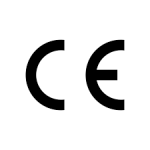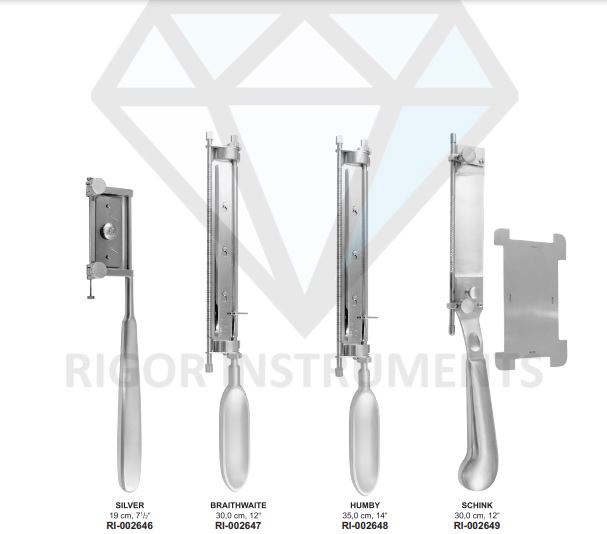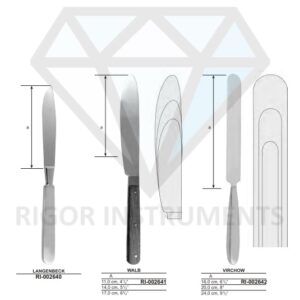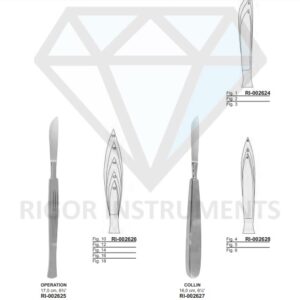Resection Knives (RI-002646)
Resection knife is specialized surgical instrument used in various medical procedures, particularly in the field of gastroenterology and neurosurgery. These blades are made to remove or resect tissues or tumors from particular bodily parts. Resection knives are frequently used in gastroenterology during endoscopic operations to remove abnormal growths or polyps from the gastrointestinal tract.There are many kinds of these knives available, including snare and hot biopsy forceps, enabling a range of cauterizing and cutting procedures. Resection knives are used in neurosurgery to carefully remove brain tumors or other aberrant tissues while causing the least amount of harm to nearby healthy brain tissue. Resection knives typically have sharp, high-quality blades to guarantee precise and effective tissue removal.
Detailed Description
Technical Specifications
Packaging and Shipping
Related Products
Reviews
Detailed Description
Lorem ipsum dolor sit amet, consectetur adipiscing elit. Ut elit tellus, luctus nec ullamcorper mattis, pulvinar dapibus leo.
Technical Specifications
Lorem ipsum dolor sit amet, consectetur adipiscing elit. Ut elit tellus, luctus nec ullamcorper mattis, pulvinar dapibus leo.
Packaging and Shipping
Lorem ipsum dolor sit amet, consectetur adipiscing elit. Ut elit tellus, luctus nec ullamcorper mattis, pulvinar dapibus leo.
Related Products
Related products
-
Sale!

Post Mortem Knives (RI-002640)
$12.00Original price was: $12.00.$11.00Current price is: $11.00. View More -

Scalpel Handle # 7 (RI-S-1008)
View More -

Collin Scalpel Handle # 9 (RI-S-1011)
View More -
Sale!

Surgical Knives (RI-002624)
$11.00Original price was: $11.00.$10.00Current price is: $10.00. View More
Reviews
Reviews
Add a review
Be the first to review “Resection Knives (RI-002646)” Cancel reply
You must be logged in to post a review.












Reviews
There are no reviews yet.